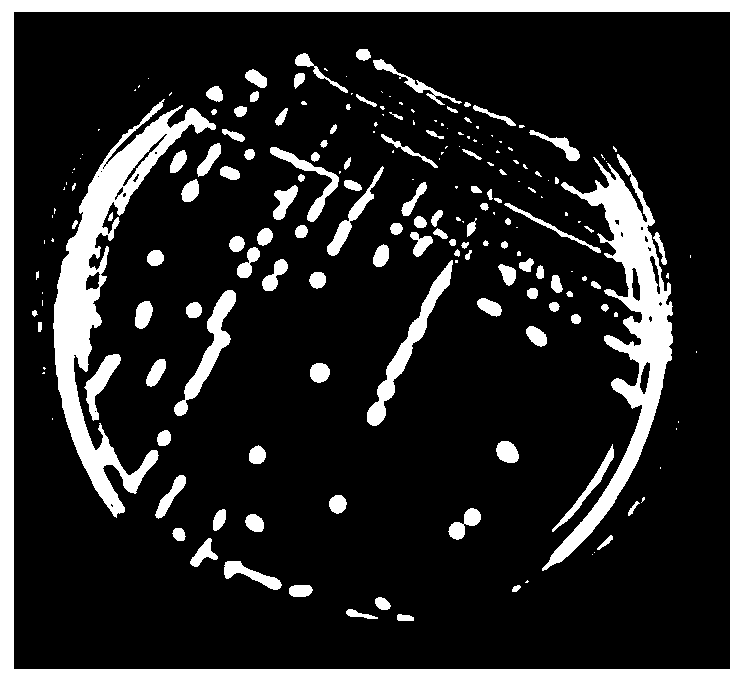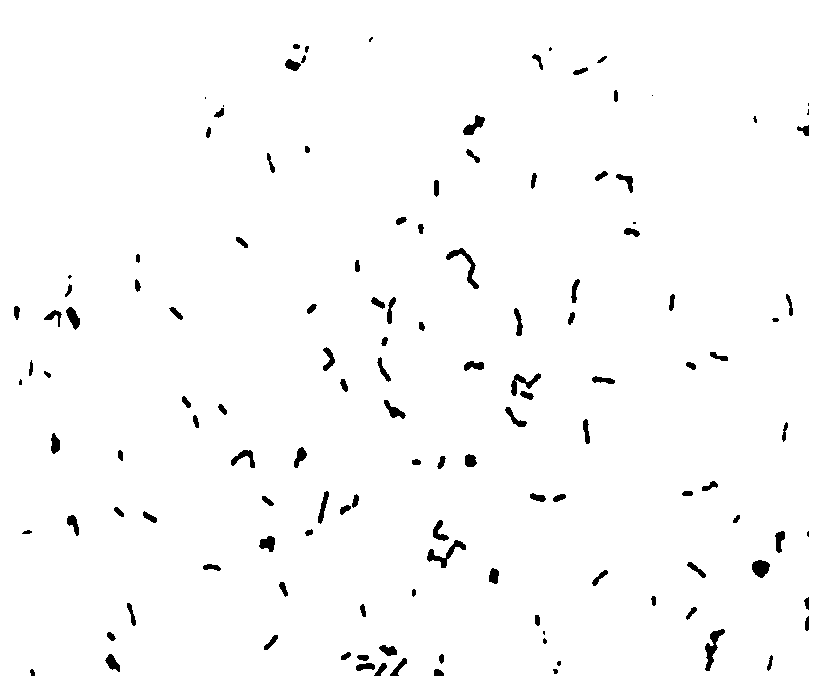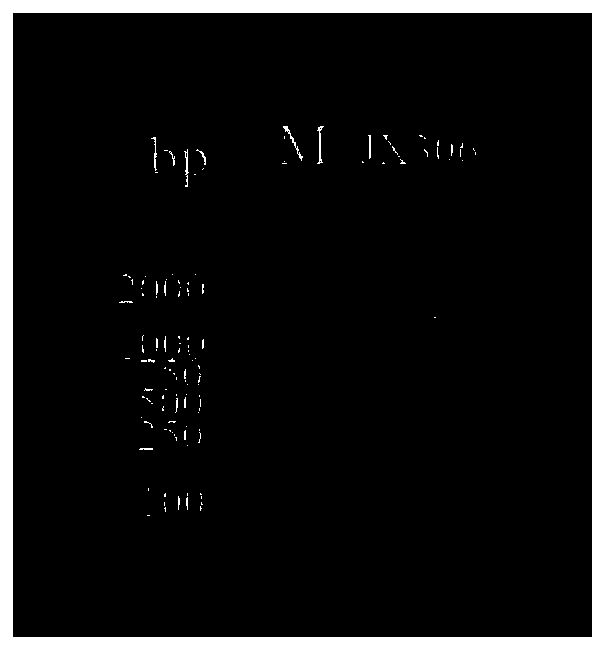Lactobacillus fermentum JX306 with antioxidant function, and application thereof
A Lactobacillus fermentum, antioxidant technology, applied in the field of bioengineering to achieve the effect of inhibiting tissue pathological damage
- Summary
- Abstract
- Description
- Claims
- Application Information
AI Technical Summary
Problems solved by technology
Method used
Image
Examples
Embodiment 1
[0030] Example 1: Obtaining and identification of Lactobacillus fermentum JX306
[0031] 1. Separation and purification of Lactobacillus fermentum JX306
[0032] The solution of Laotan sauerkraut in Ji'an, Jiangxi was diluted with sterile saline (0.85%, w / v) successively, and spread on the MRS agar plate (containing 0.75% CaCO2 in the MRS liquid medium). 3 and 1.5% agar powder). After static culture at 37°C for 48 hours, the colonies were separated according to their size, color, shape and edge characteristics, and repeatedly streaked and purified on the MRS solid medium until pure, single colonies appeared on the solid medium. The isolated lactic acid bacteria were continuously passaged for more than 5 times, and the strains with stable growth and fast growth were screened out, cultured at 37°C until the stable phase, and all strains were stored at -80°C in MRS liquid medium containing 20% glycerol .
[0033] 2. Identification of Lactobacillus fermentum JX306
[0034] 1...
Embodiment 2
[0061] Example 2. Determination of Lactobacillus fermentum JX306 Antioxidant Index in Vitro
[0062] Lactobacillus fermentum JX306 was inoculated with 1% (v / v) in 1.0mL MRS liquid medium, cultured at 37°C for 24h, centrifuged at 8000×g for 10min, washed with sterile water twice to adjust the bacterial cells The concentration is 4×10 8 CFU / mL.
[0063] 1. DPPH free radical scavenging experiment
[0064] Add 1.0mL DPPH solution with a concentration of 0.2mmol / L to 1.0mL bacterial cells (dissolve DPPH in absolute ethanol), mix well, react in the dark at room temperature for 30min, centrifuge at 8000×g for 10min, and take the supernatant at a wavelength of 517nm Measure the absorbance. The measurement results showed that the DPPH free radical scavenging rate of Lactobacillus fermentum JX306 was 37.29%, showing better free radical scavenging ability.
[0065] 2. Hydroxyl radical scavenging ability test
[0066] 1.0mL bacterial cells, 0.5mL o-phenanthroline (2.5mmol / L), 1.0mL P...
Embodiment 3
[0073] Example 3. In vitro tolerance determination of Lactobacillus fermentum JX306
[0074] Lactobacillus fermentum JX306 was inoculated with 1% (v / v) in 1.0mL MRS liquid medium, cultured at 37°C for 24h, centrifuged at 8000×g for 10min, washed with sterile water twice to adjust the bacterial cells The concentration is 4×10 8 CFU / mL.
[0075] 1. Determination of bile salt tolerance
[0076] Adjust the bacterial cell concentration to 4×10 8 CFU / mL, resuspended in 1 mL of sterile saline solution containing 1 mg / mL trypsin and 0.5% (w / v) bile salts. Cells were incubated at 37°C for 1h, 2h, and 3h, diluted and spread on MRS plates. After incubation at 37°C for 48h, the survival rate of the strains was determined by plate counting. The measurement results are shown in Table 5, and the results showed that the survival rate of the strains showed a downward trend as time went on.
[0077] The tolerance to bile salts of the bacterial strains in table 5
[0078]
[0079] 2. Re...
PUM
 Login to View More
Login to View More Abstract
Description
Claims
Application Information
 Login to View More
Login to View More - R&D
- Intellectual Property
- Life Sciences
- Materials
- Tech Scout
- Unparalleled Data Quality
- Higher Quality Content
- 60% Fewer Hallucinations
Browse by: Latest US Patents, China's latest patents, Technical Efficacy Thesaurus, Application Domain, Technology Topic, Popular Technical Reports.
© 2025 PatSnap. All rights reserved.Legal|Privacy policy|Modern Slavery Act Transparency Statement|Sitemap|About US| Contact US: help@patsnap.com



